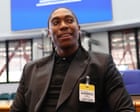
In a week marked by significant developments in human rights and legal battles, the global landscape has been both challenged and inspired by stories of resilience and calls for justice. From the European court’s ruling in favor of South African athlete Caster Semenya to increasing criminalization impacting HIV-high-risk groups, these events serve as poignant reminders of the ongoing quest for dignity and equality.
In an empowering victory, Caster Semenya, the South African runner known for her tenacity on the track, received a favorable ruling from the European Court of Human Rights. The court determined that Semenya had not received a fair trial when she contested regulations requiring her to reduce her natural testosterone levels to compete in women’s sports. This decision marks a significant victory in her long-standing legal battle to participate in athletics without altering her natural body chemistry. Semenya’s triumph serves as a clarion call for the preservation and protection of athletes’ rights, urging sports bodies to prioritize inclusivity and fairness.
Meanwhile, in a concerning report by UNAids, it has been revealed that people at higher risk of HIV, including gay men and those who inject drugs, are facing unprecedented levels of criminalization worldwide. This troubling trend may hinder efforts in combating the HIV/AIDS epidemic, as punitive laws against same-sex sexual activity and gender expression have risen for the first time in a decade. The agency warns that such developments, coupled with the cessation of U.S. funding, could reverse decades of progress in treating and preventing the disease. By sharing these insights, UNAids shines a spotlight on the necessity for compassionate, well-informed policies that uphold the rights and well-being of vulnerable communities.
Across the globe, another legal battle unfolds as Choi Min-kyung, a North Korean defector, filed a lawsuit against the regime’s leader, Kim Jong-un, in a South Korean court. She alleges torture and sexual violence within the state’s detention facilities, seeking recompense and accountability for the abuses faced by detainees. Choi’s action highlights the ongoing struggle faced by North Korean defectors who endure severe human rights violations. This courageous lawsuit underscores the urgent need for international awareness and intervention to address systemic abuses in North Korea.
In South Asia, Bangladesh’s former leader, Sheikh Hasina, was charged with crimes against humanity over her role in a deadly government crackdown on protests last year. These demonstrations, protesting against her government, tragically ended with more than 1,400 fatalities. Although Hasina remains in hiding in India, the charges brought against her signal an essential step towards accountability and justice. Her absence adds complexity to Bangladesh’s political landscape, reminding us that while justice may be delayed, it remains a crucial pursuit for a society aspiring to heal and rebuild.
These stories together weave a tapestry of human rights challenges intertwined with hope and resilience. While obstacles remain, the tenacity displayed by individuals and groups worldwide demonstrates an unwavering commitment to justice and equity. As we continue to learn from these events, they invite reflection on how each of us might contribute to the larger narrative of global justice and human dignity, fostering a world where every individual is valued and respected.
Source: {link}
